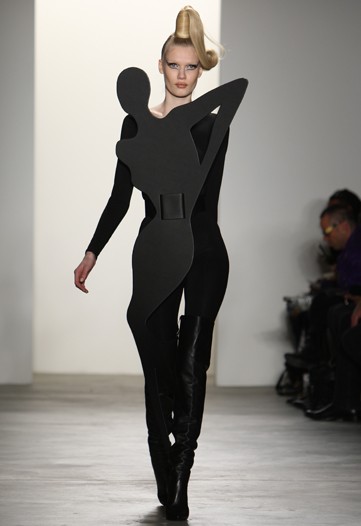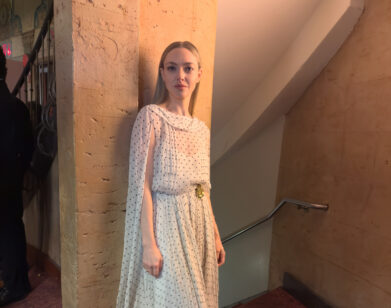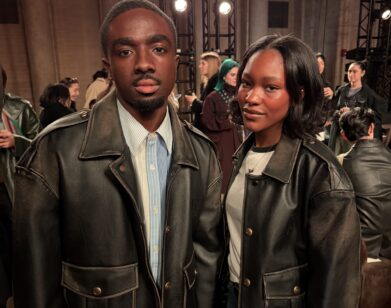Jeremy Scott’s Clothes Wear You

Designer Jeremy Scott is a fashion satirist and born contrarian. His neon empire is built around going against the grain, embracing excess, and taking nothing–particularly clothes–seriously. It makes sense, then, that Scott returned to New York’s runways this week with a dark and witty tribute to the flashy semiotics of fashion’s past–just as fashion enters its most ascetic and discreet phase since mid 90s Lang-and-Sander-helmed minimalism. For Fall 2010’s clever “Hanger Appeal” collection, Scott’s mind was on the motifs, symbols, and signifiers that represent everything people love–and loathe–about the industry. First up, Scott toyed with the notion of models wearing models. There were pin-up prints on leggings and leotards, and even giant paper doll cutouts He subverted the age-old “don’t let your clothes wear you” axiom by sending out models (in Barbara Eden-esque top-knots) in conspicuous batwing dresses that read “STYLE” in front and “FASHION” on the back. The self-promoting “Little Black Dress” bore its title proudly, mocking the concept that art should show rather than tell, while the “100% wool, Dry Clean Only” dress turned garment care into a public spectacle. Halfway through the show, a model sported a gown with a long train attached to the golden hanger in her hand revealing the collection’s namesake.
Like an over-stimulated kid with a sticker gun, Scott decorated tracksuits and dresses with opulent hardware logos, lampooning the showy label-dropping crimes of the social climbers of the early 2000s. Even religious iconography is fair game for Scott: it dominated the show’s final few looks. A stained glass-patterned bustier dress commanded us to “Pray For Fashion,” while glittery crucifixes and gemstones littered velvet jumpsuits. But for all of Scott’s supreme wit, “Hanger Appeal” was met with loud and literal worship from his legion of devoted front row followers, who gave the show a standing ovation. As he sauntered down the runway, pausing to wink at Kelly Osbourne, you got the idea that it’s an irony that never grows old for him.






